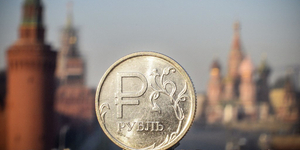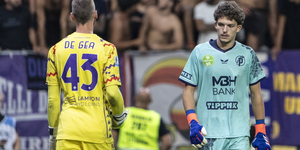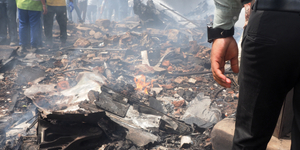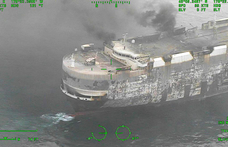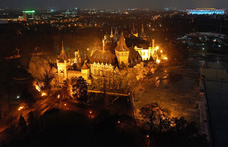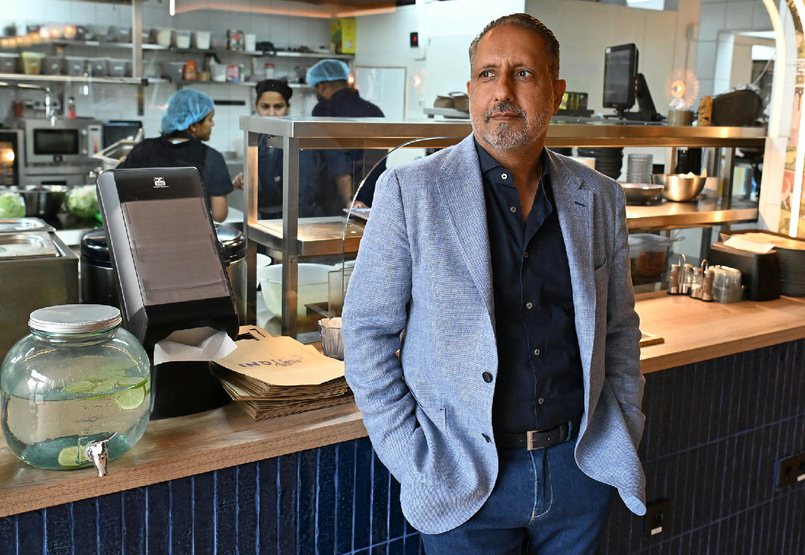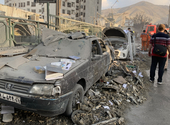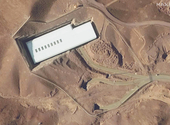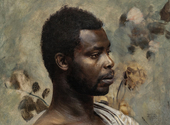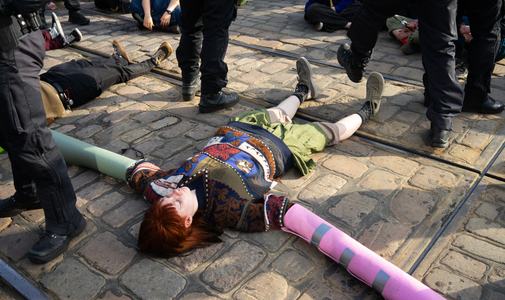Kuruc.info's media putsch and the bridge blockade
Our young extremists know their rights. But it is outrageous that they should compare themselves to people like Peter Mansfeld, who was arrested and hung on his 18th birthday by Kadar's men. They must be amused by the light punishments meted out by the justice system. It is time to wipe the smile off their faces.
The far right fringe in Hungary has carried out a dramatic media putsch. Somehow, they seem to have supplanted the Budapest Police press office, leading a fair number of press organs by the nose for several hours. Persuading those organs that an unrelated ruling in Strasbourg about freedom of assembly and the "precedent" of the illegal taxi blockade would force the police to allow them to paralyse the city's transport network.
It's an instructive lesson for the media. And it's a warning for the authorities, who have once again been caught short facing up to far-right hooligans. In our democracy, the rampaging neo-Hungarists can cause unpleasant surprises in the virtual space as well. It doesn't hurt to be clear about who we're dealing with. And it would be worth taking a closer look at these digital criminals who are so cavalier about civil rights. At least their move brought one benefit: Fidesz has finally distanced itself from them, refusing to offer even a tacit defence of their actions.
Wise after the event, we are tempted to see the nonsense printed in the papers as a banal trick, proof of the deference shown by liberals who are prepared to nod to anybody's assertions if they are made on paper in the right way. Yet the swindle was obvious. The human rights court's ruling only related to spontaneous demonstrations. But this demo had been trailed on the internet for days.
And the ruling only related to peaceful demonstrations. But the kind of hooliganism whose declared aim was to waste hundreds of thousands of car drivers' time and money can hardly be described as peaceful. The taxi blockade of autumn 1990 was just as criminal as the recent bridge battle. The proof of this is a law that was passed in 1991, making it a criminal offence to disturb public order.
The police didn't intervene back then. There are two reasons. First, the memory of how the post-Kadar state had brutally suppressed a 1988 demonstration was still fresh. The Antall government, which had only been in power for a couple of months did not want to start its term in office with a similar spectacle. The other was that the 1990 blockade did not involve a few hundred extremists in a few isolated locations. It was a country-wide protest wave with thousands of participants. So the government tried to negotiate with them. But this did not make it any more legal. Given its illegality, the Free Democrats, a parliamentary party, made a huge mistake by supporting the blockade. Furthermore, the party cut the branch from underneath itself: almost every rioter today justifies his activities with reference to the crimes committed 17 years ago.
It's ironic, but nonetheless true that today's caricatures of the 1956 revolutionaries would have been justified in their self-aggrandising comparisons if the police had really done what the false press releases suggested they would. If a few fanatics really had been able to shut down a metropolis of 2m people and been protected by the police. Citizens would have risen up in fury if they had seen that the police they pay for were tolerating the acts of these few extremists.
Look at the hooligans on the bridge. You can see on their faces that they are driven by a combination of cynicism and fanaticism. Read the articles on the far-right website Kuruc.info, and it's clear they believe Hungary to be a police state run by Jewish and Roma crime syndicates, with international and Israeli Zionists at the top of the heap. But they also know this is fantastical nonsense. Because they are making full use of the civil rights afforded them. Their website is hosted on an American server. If the US and Hungary were such totalitarian hellholes, then how hard would it be to shut down their site, as they do in Burma, torture them to death and dump them in a mass grave?
Elod Novak is the key figure behind the bridge closure. He wrote: "In today's climate, a Pest lad should have been in prison at least once. Then he can sue for compensation with the help of the National Legal Protection Foundation. Earning Ft1m for three days in prison isn't a bad deal. Let's make it clear: there are no political prisoners. There are show trials and show convictions, but the last prisoner was released on 20 September. He was Akos Udvardi, the only policeman who ended up in prison. Of course, he, too, is on our side. He stormed the TV headquarters in civilian clothes. I've corresponded with him since, and while he was in prison. Krisztina Morvai and Tamas Gaudi-Nagy are not aware of any other prisoners. Individual freedoms are guaranteed."
It's not just police who should be easily identifiable. Young people who cover their faces with scarves should be punishable as well. It's also important that IP addresses should be easily traceable, especially if somebody uploads a call to carry out criminal acts from home onto a foreign server. Nobody should be punished for holding extreme opinions, but there most certainly should be consequences for people who call for acts of violence. We have to be stricter on street "loser terror".
Tamás Papp László
It's an instructive lesson for the media. And it's a warning for the authorities, who have once again been caught short facing up to far-right hooligans. In our democracy, the rampaging neo-Hungarists can cause unpleasant surprises in the virtual space as well. It doesn't hurt to be clear about who we're dealing with. And it would be worth taking a closer look at these digital criminals who are so cavalier about civil rights. At least their move brought one benefit: Fidesz has finally distanced itself from them, refusing to offer even a tacit defence of their actions.
Wise after the event, we are tempted to see the nonsense printed in the papers as a banal trick, proof of the deference shown by liberals who are prepared to nod to anybody's assertions if they are made on paper in the right way. Yet the swindle was obvious. The human rights court's ruling only related to spontaneous demonstrations. But this demo had been trailed on the internet for days.
And the ruling only related to peaceful demonstrations. But the kind of hooliganism whose declared aim was to waste hundreds of thousands of car drivers' time and money can hardly be described as peaceful. The taxi blockade of autumn 1990 was just as criminal as the recent bridge battle. The proof of this is a law that was passed in 1991, making it a criminal offence to disturb public order.
The police didn't intervene back then. There are two reasons. First, the memory of how the post-Kadar state had brutally suppressed a 1988 demonstration was still fresh. The Antall government, which had only been in power for a couple of months did not want to start its term in office with a similar spectacle. The other was that the 1990 blockade did not involve a few hundred extremists in a few isolated locations. It was a country-wide protest wave with thousands of participants. So the government tried to negotiate with them. But this did not make it any more legal. Given its illegality, the Free Democrats, a parliamentary party, made a huge mistake by supporting the blockade. Furthermore, the party cut the branch from underneath itself: almost every rioter today justifies his activities with reference to the crimes committed 17 years ago.
It's ironic, but nonetheless true that today's caricatures of the 1956 revolutionaries would have been justified in their self-aggrandising comparisons if the police had really done what the false press releases suggested they would. If a few fanatics really had been able to shut down a metropolis of 2m people and been protected by the police. Citizens would have risen up in fury if they had seen that the police they pay for were tolerating the acts of these few extremists.
Look at the hooligans on the bridge. You can see on their faces that they are driven by a combination of cynicism and fanaticism. Read the articles on the far-right website Kuruc.info, and it's clear they believe Hungary to be a police state run by Jewish and Roma crime syndicates, with international and Israeli Zionists at the top of the heap. But they also know this is fantastical nonsense. Because they are making full use of the civil rights afforded them. Their website is hosted on an American server. If the US and Hungary were such totalitarian hellholes, then how hard would it be to shut down their site, as they do in Burma, torture them to death and dump them in a mass grave?
Elod Novak is the key figure behind the bridge closure. He wrote: "In today's climate, a Pest lad should have been in prison at least once. Then he can sue for compensation with the help of the National Legal Protection Foundation. Earning Ft1m for three days in prison isn't a bad deal. Let's make it clear: there are no political prisoners. There are show trials and show convictions, but the last prisoner was released on 20 September. He was Akos Udvardi, the only policeman who ended up in prison. Of course, he, too, is on our side. He stormed the TV headquarters in civilian clothes. I've corresponded with him since, and while he was in prison. Krisztina Morvai and Tamas Gaudi-Nagy are not aware of any other prisoners. Individual freedoms are guaranteed."
It's not just police who should be easily identifiable. Young people who cover their faces with scarves should be punishable as well. It's also important that IP addresses should be easily traceable, especially if somebody uploads a call to carry out criminal acts from home onto a foreign server. Nobody should be punished for holding extreme opinions, but there most certainly should be consequences for people who call for acts of violence. We have to be stricter on street "loser terror".
Tamás Papp László


